
|

|
About BruneiThe nation - a short profileThe Nation of Brunei, the Abode of Peac is a sovereign state located on the north coast of the island of Borneo, in Southeast Asia. Apart from its coastline with the South China Sea, it is completely surrounded by the state of Sarawak, Malaysia, and it is separated into two parts by the Sarawak district of Limbang. It is the only sovereign state completely on the island of Borneo, with the remainder of the island belonging to Malaysia and Indonesia. Brunei's population was 401,890 in July 2011.
Brunei has the second highest Human Development Index among the South East Asia nations after Singapore, and is classified as a developed country. According to the International Monetary Fund (IMF), Brunei is ranked 5th in the world by gross domestic product per capita at purchasing power parity. The IMF also states in a 2011 estimate that Brunei was one of two countries (the other being Libya) with their public debt at 0% of the national GDP. Forbes also ranks Brunei as the fifth richest nation out of 182 nations due to its extensive petroleum and natural gas fields. GeographyBrunei is a southeast Asian country consisting of two unconnected parts with the total area of 5,765 square kilometres (2,226 sq mi). It has 161 kilometres (100 mi) of coastline next to the South China sea, and it shares a 381 km (237 mi) border with Malaysia. It has 500 square kilometres (193 sq mi) of territorial waters, and an 200 nautical mile exclusive economic zone. About 97% of the population lives in the larger western part (Belait, Tutong, and Brunei-Muara), while only about 10,000 people live in the mountainous eastern part (Temburong District). The total population of Brunei is approximately 408,000 as of July 2010, of which around 150,000 live in the capital Bandar Seri Begawan.[68] Other major towns are the port town of Muara, the oil producing town of Seria and its neighboring town, Kuala Belait. In Belait District, the Panaga area is home to large numbers of expatriates due to Royal Dutch Shell and British Army housing and several recreational facilities are located there. Most of Brunei is within the Borneo lowland rain forests ecoregion that covers most of the island but there are areas of mountain rain forests inland. The climate of Brunei is tropical equatorial.[4] The average annual temperature is 26.1 °C (79.0 °F), with the April–May average of 24.7 °C (76.5 °F) and the October–December average of 23.8 °C (74.8 °F). [sourced from wikipedia] |
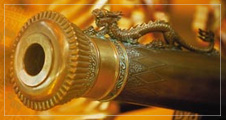 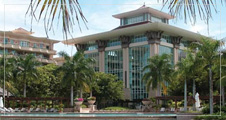 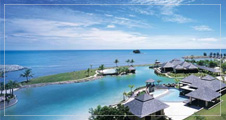 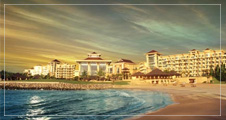 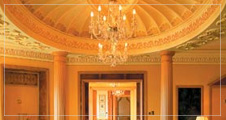 |